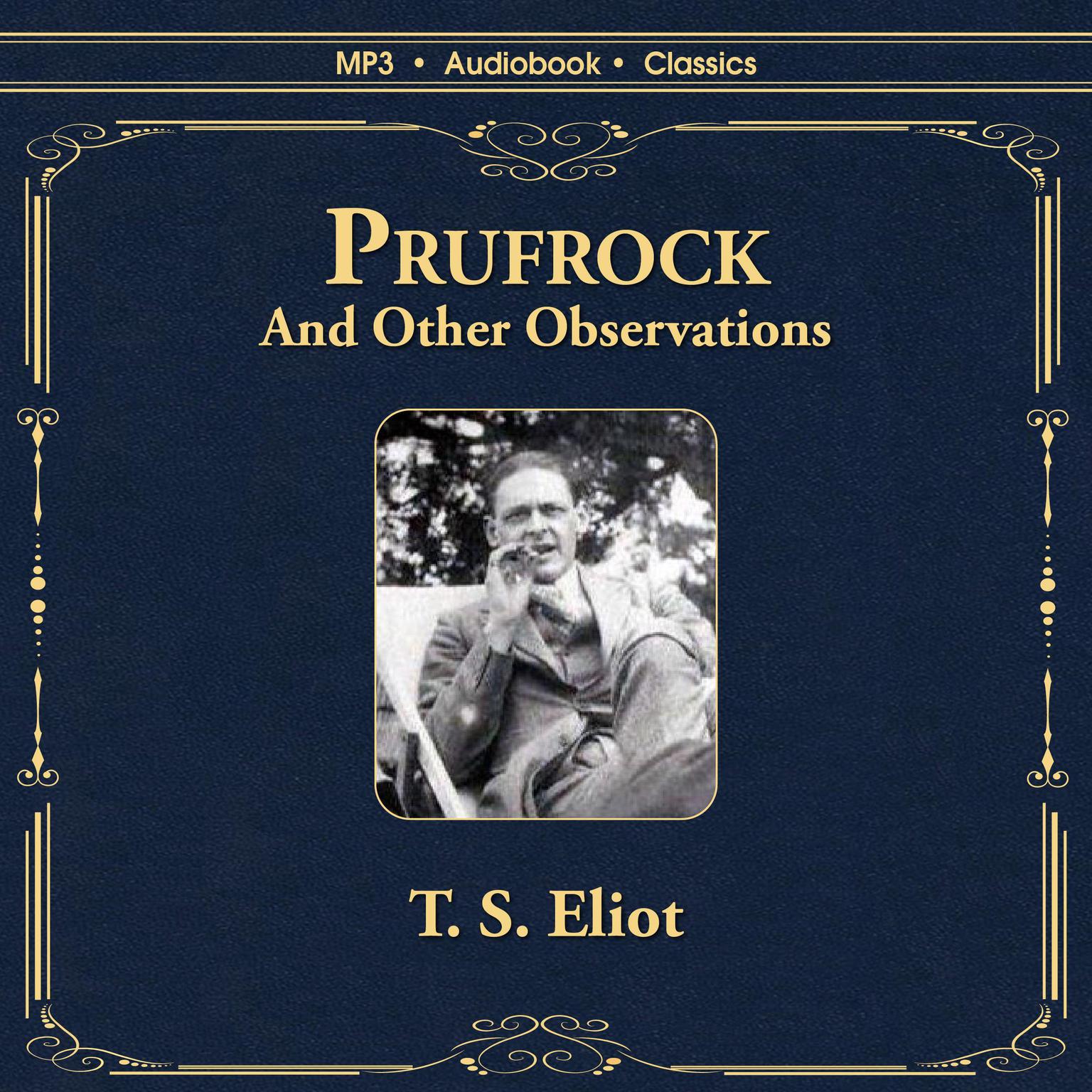 Play Audiobook Sample
Play Audiobook Sample
Prufrock and Other Oberservations Audiobook
 Play Audiobook Sample
Play Audiobook Sample
Quick Stats About this Audiobook
Total Audiobook Chapters:
Longest Chapter Length:
Shortest Chapter Length:
Average Chapter Length:
Audiobooks by this Author:
Publisher Description
Prufrock and Other Observations is the title of a pamphlet of twelve poems by T. S. Eliot published in 1917 by The Egoist, a small publishing firm run by Dora Marsden, an English suffragette and philosopher of language. Most of the poems had been published earlier in literary magazines, most notably the “The Love Song of J. Alfred Prufrock”, which was Eliot’s first published poem and appeared in the June 1915 issue of Poetry: A Magazine of Modern Verse at the urging of Ezra Pound, overseas editor for the magazine. Prufrock is a dramatic interior monologue of a modern urban man trapped in an inertia of isolation and indecision that has been described as a “drama of literary anguish”. The poem was influenced by The Divine Comedy and is peppered with references to the Bible, Shakespeare plays, and the works of metaphysical poet Andrew Marvell and the French symbolist poets. It was considered outlandish when it first appeared. One anonymous London reviewer commented that "The fact that these things occurred to the mind of Mr. Eliot is surely of the very smallest importance to anyone, even to himself. They certainly have no relation to poetry." As it happens, Prufrock and the companion poems in this volume helped effect a paradigm shift away from Romanticism and Georgian lyrics to what came to be called Modernism and introduced one of the most distinctive voices and recognized voices in modern literature.
Download and start listening now!
Prufrock and Other Oberservations Listener Reviews
Be the first to write a review about this audiobook!
About T. S. Eliot
Thomas Stearns Eliot (1888–1965) was born in St. Louis, Missouri, and became a British subject in 1927. The acclaimed poet of The Waste Land, Four Quartets, and Old Possum’s Book of Practical Cats, among numerous other poems, prose, and works of drama, won the Nobel Prize for Literature in 1948. He recast twentieth-century English poetry with a new vocabulary of technique, giving voice to a bold, vibrantly original Modernist style. In addition to his poetry, his body of work includes many landmark critical essays, as well as plays. He is buried in Westminster Abbey.





